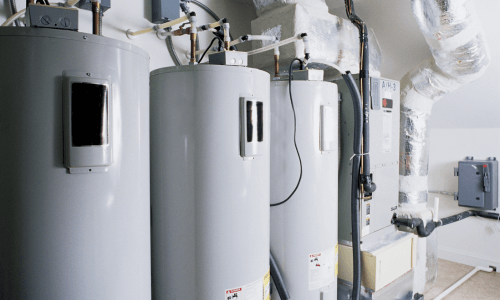
Should I Repair, Replace, Or Ignore My Water Heater?
Your hot water heater plays a crucial role in your daily life, providing comfort and convenience with hot water for showers, washing dishes, and laundry. However, like all appliances, hot water heaters have a lifespan and may eventually require maintenance or replacement. Deciding whether to repair or replace your hot water heater can be challenging. In this comprehensive guide, the experts at Local Plumber in Sarasota, Tampa, Bonita Springs Florida will help you evaluate the situation and make an informed decision.Understanding Hot Water Heater Systems
Before diving into repair versus replacement, it’s important to understand the basics of hot water heaters:1. Types of Hot Water Heaters
- Tankless (On-Demand) Water Heaters: Heat water directly without storing it, providing hot water on demand.
- Storage Tank Water Heaters: Store a large volume of hot water in a tank, ready for use.
- Heat Pump Water Heaters: Use heat from the air or ground to heat water, which can be more energy-efficient.
- Solar Water Heaters: Use solar panels to collect and convert sunlight into heat for the water.
2. Common Issues
- Leaking: Leaks can occur from the tank or connections.
- No Hot Water: Various issues can cause a lack of hot water, from thermostat problems to heating element failures.
- Rust or Sediment Buildup: Over time, tanks can corrode or accumulate sediment, affecting performance.
- Strange Noises: Sediment buildup or heating element issues can cause banging or popping noises.
Evaluating Whether to Repair or Replace
To determine whether you should repair or replace your hot water heater, consider the following factors:1. Age of the Hot Water Heater
- Tank Water Heaters: Typically last 10-15 years. If your tank water heater is older than 10 years, it may be more cost-effective to replace it rather than repair it.
- Tankless Water Heaters: Can last 15-20 years. If your tankless heater is within this range and experiencing issues, repair might be a viable option.
- Heat Pump and Solar Water Heaters: Have varying lifespans but generally last 10-15 years. Replacement might be more economical if they are approaching the end of their lifespan.
2. Frequency of Repairs
- High Repair Costs: If you find yourself frequently repairing the hot water heater, it may be a sign that it’s time for a replacement. Ongoing repairs can add up and may not be worth the investment.
- Recent Repairs: Consider the cost and effectiveness of recent repairs. If repairs were costly and did not resolve the issue, replacement might be a better option.
3. Cost of Repair vs. Replacement
- Repair Costs: Minor repairs, such as replacing a thermostat or heating element, can be relatively inexpensive. However, significant repairs or replacements of major components can be costly.
- Replacement Costs: Replacing a hot water heater involves the cost of the new unit and installation. While it may seem expensive upfront, a new unit may provide better efficiency and reliability.
4. Energy Efficiency
- Older Models: Older hot water heaters are generally less energy-efficient, leading to higher utility bills. Newer models, especially energy-efficient or tankless units, can save you money in the long run.
- Upgrading: Replacing an old unit with a modern, energy-efficient model can result in significant savings on your energy bills and improve performance.
5. Performance Issues
- Inconsistent Hot Water: If your hot water heater is struggling to provide consistent hot water or if the water temperature is irregular, it may be time to consider replacement.
- Insufficient Hot Water: If your current unit no longer meets your household’s hot water needs, upgrading to a larger or more efficient model may be necessary.
6. Leaks and Corrosion
- Tank Leaks: If you have a tank water heater with visible leaks or signs of corrosion, it’s often more cost-effective to replace the unit. Leaks can indicate a failing tank, which is not easily repairable.
- Corrosion: Significant corrosion, especially in the tank, can compromise the integrity of the hot water heater and may necessitate replacement.
7. Safety Considerations
- Electrical or Gas Issues: Problems with the electrical or gas components of your hot water heater can pose safety risks. If repairs involve these components and they are old, replacement may be a safer option.
- Risk of Failure: An old or damaged hot water heater can be a safety hazard. If the unit is showing signs of significant wear or failure, it may be safer to replace it.
Steps to Take When Deciding to Repair
If you decide to repair your hot water heater, follow these steps:1. Diagnose the Issue
- Identify the Problem: Determine the specific issue with your hot water heater. Common problems include heating element failures, thermostat malfunctions, or sediment buildup.
- Consult a Professional: Contact a licensed plumber to diagnose the problem accurately and recommend the best course of action.
2. Get a Repair Estimate
- Cost Assessment: Request an estimate for the repair costs, including parts and labor.
- Compare Costs: Compare the repair costs with the potential cost of replacement to determine the most cost-effective option.
3. Evaluate Repair Effectiveness
- Effectiveness of Repairs: Consider whether the repair will restore the hot water heater to a reliable and efficient state. If the repair is only a temporary fix, replacement may be a better choice.
4. Schedule Repairs
- Hire a Professional: If you choose to repair, hire a licensed plumber with experience in hot water heater repairs.
- Follow Maintenance Tips: After repairs, follow proper maintenance practices to extend the life of the hot water heater.
Steps to Take When Deciding to Replace
If you decide to replace your hot water heater, consider the following steps:1. Choose the Right Replacement
- Type of Heater: Determine which type of hot water heater best suits your needs (tankless, storage tank, heat pump, or solar).
- Size and Capacity: Choose a unit with the appropriate size and capacity for your household’s hot water needs.
- Energy Efficiency: Look for models with high energy efficiency ratings to save on utility bills.
2. Get a Replacement Estimate
- Cost Assessment: Request estimates for the cost of the new unit and installation.
- Compare Options: Compare different models and installation costs to find the best value.
3. Hire a Professional Installer
- Licensed Plumber: Hire a licensed and experienced plumber to install the new hot water heater. Proper installation is crucial for the unit’s performance and longevity.
- Ensure Compliance: Make sure the installation meets local building codes and regulations.
4. Dispose of the Old Unit
- Proper Disposal: Arrange for the proper disposal of the old hot water heater. Many plumbers offer disposal services as part of the replacement process.
5. Maintain the New Unit
- Regular Maintenance: Follow manufacturer recommendations for regular maintenance to ensure the longevity and efficiency of the new hot water heater.
- Annual Inspections: Schedule annual inspections with a professional plumber to catch any potential issues early.
Conclusion
Deciding whether to repair or replace your hot water heater involves evaluating factors such as age, repair frequency, cost, energy efficiency, and performance issues. By considering these factors and consulting with a professional plumber, you can make an informed decision that best suits your needs and budget.
For expert advice and services in Sarasota, Tampa, Bonita Springs, Florida, trust the experienced team at Local Plumber. We’re here to help with all your hot water heater needs, from repairs to replacements, ensuring your home has reliable and efficient hot water. Contact us today to schedule an inspection or discuss your options. Email us at services@local-plumber.com or call us at (833) 247-7667 (POOP).
Related Tags:




